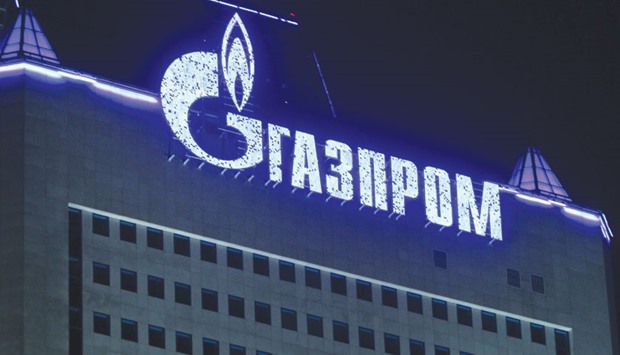Russia increased its European natural gas market dominance last year, supplying more than half of Germany’s imports as oil’s longest slump on record made its fuel more attractive.
Germany, Europe’s biggest gas user, got about 55% of its foreign fuel from Russia last year, and as much as 75% in the fourth quarter, according to Georgi Slavov, the London-based head of research at Marex Spectron Group, who estimated typical average levels are 30 to 50%. Gazprom boosted shipments to Germany by 17% in 2015, the Moscow-based company said this week.
Russia has prioritised the expansion of the Nord Stream pipeline directly to Germany, in the face of opposition from transit nations including Ukraine, as souring relations halted a planned link to Turkey and stagnating demand in Asia slowed expansion to China. The company has also fought customer demands to decouple its prices under long-term contracts from crude. Brent slipped 35% in 2015 in a third consecutive annual drop, cutting into income.
“Germany will remain an important buyer of Russian gas in the future for sure, especially since Gazprom’s pivot to Asia is not going according to plan and the Turkish Stream pipeline is currently halted,” Sijbren de Jong, an energy security analyst at the Hague Centre for Strategic Studies, said by e-mail. “Gazprom has a slight competitive price advantage due to having the bulk of its contracts pegged to the price of oil.”’
Gazprom supplied 45.3bn cubic meters (1.6tn cubic feet) to Germany last year. That compares with a 7.1% increase in Norwegian exports to 47.9bn cubic meters last year, according to data from Gassco compiled by Bloomberg, which doesn’t take account of onward shipments from Germany.
Statoil, Norway’s state-controlled oil company, previously said it no longer has oil indexation in its German contracts, while most of its European contracts are linked to spot prices. Norway shipped record-high volumes to Europe last year, Gassco said January 11.
Statoil doesn’t compete for market share and sells gas where it gets the highest price, Elin Isaksen, a spokeswoman, said by e-mail. Gazprom spokesman Sergey Kupriyanov said he wasn’t immediately able to confirm the estimates of the company’s German market share when reached by telephone.
“They need gas and there are no other suppliers that are capable of boosting volumes and with competitive prices at the same time,” Kupriyanov said.
Russia may increase its gas exports to Europe this year because of colder weather in the region, Russian Energy Minister Alexander Novak said yesterday on Russia’s RBC television. Gazprom boosted shipments by 8% in 2015 to 159.4bn cubic meters.
German gas consumption rose 5% to 80.3bn cubic meters last year, mainly because of colder weather, according to utility lobby group BDEW. The country typically gets 35% of its needs from Russia, 32% from Norway, 20% from the Netherlands, 9% from domestic production and 4% from other suppliers, according to Wingas, a Gazprom-owned gas trading unit in Germany.
Russia, which has been supplying gas to Germany for more than four decades, gets about 28% of its total revenue outside the former Soviet Union from the EU nation. As crude declines filtered into gas prices, the company’s revenue from shipments to Germany fell more than 15% in 2015 to about $10bn, according to Bloomberg calculations based on Gazprom export data and pricing estimates from the International Monetary Fund.

An OAO Gazprom logo is seen on display at the company’s headquarters in Moscow. Gazprom boosted shipments to Germany by 17% in 2015, the company said.
